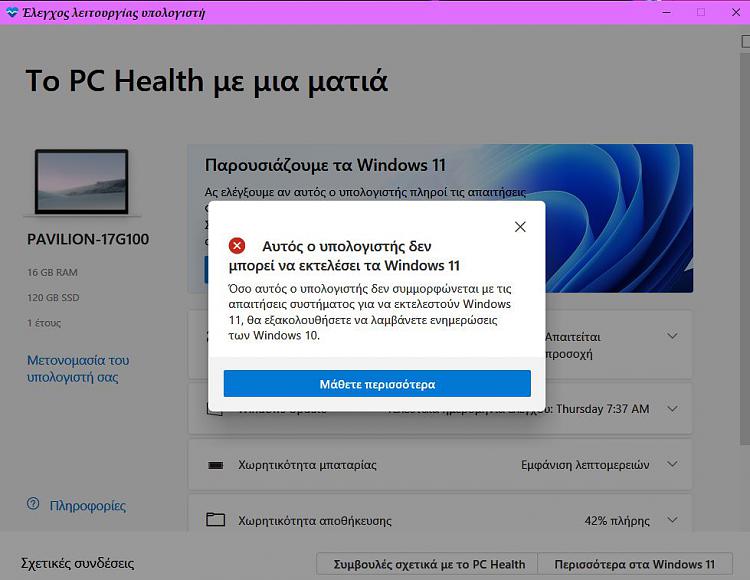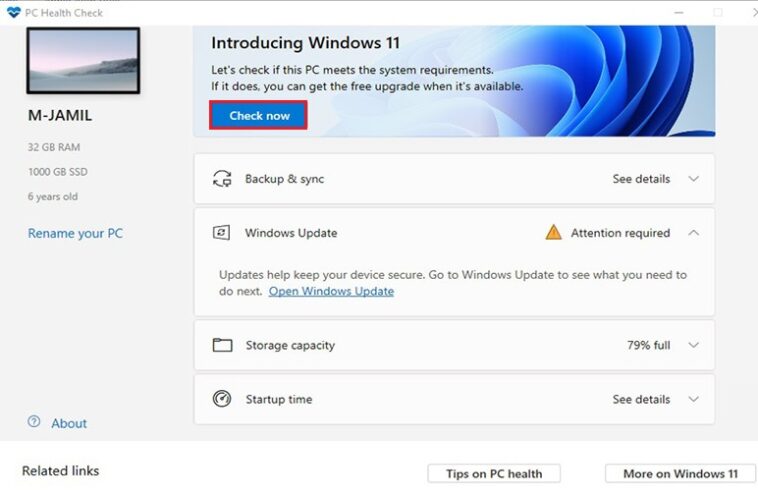

If your system is compatible, you’ll get a pop-up stating “This PC will run Windows 11".
 Click on the blue coloured “Check Now” button on the Windows 11 banner. To run the health check you need to first download and install Microsoft's PC Health (opens in new tab) Check app. In case your system meets the above-mentioned criteria, you need to run a health check to check if your PC will get Windows 11 update and ensure you're system ready.In case your device fails the health check, you will still have some time to update the computer to make it Windows 11 compatible since the OS will start rolling out sometime later this year. (Image credit: Future) Windows 11 compatibility check
Click on the blue coloured “Check Now” button on the Windows 11 banner. To run the health check you need to first download and install Microsoft's PC Health (opens in new tab) Check app. In case your system meets the above-mentioned criteria, you need to run a health check to check if your PC will get Windows 11 update and ensure you're system ready.In case your device fails the health check, you will still have some time to update the computer to make it Windows 11 compatible since the OS will start rolling out sometime later this year. (Image credit: Future) Windows 11 compatibility check 
A Microsoft account is required for some features
Internet connection and Microsoft accounts: Internet connection to download and set up the device. Display: 9-inch or larger display with HD (720P) resolution or more. Graphics card: Compatible with DirectX 12 or later with WDDM 2.0 driver. TPM: Trusted Platform Module (TPM) version 2.0. System firmware: UEFI, Secure Boot capable. Storage: 64 GB or larger storage device. Processor: 1 gigahertz (GHz) or faster with 2 or more cores on a compatible 64-bit processor or System on a Chip (SoC). To download Windows 11 on your PC, it must meet the below requirements. Similarly, if your device runs on AMD’s A-series and FX-series, along with Ryzen 1000 and most Ryzen 2000 processors, it will not be able to run Windows 11. Also, an important thing, Windows 11 will not support 32-bit systems, so if you had been thinking of updating your device, well, the time has come. When it comes time to check if your PC will get Windows 11 update, it's worth noting that while Windows 11 is available as a free download, Microsoft has set a baseline of hardware specifications that allows users to take advantage of all its features.Īll the PCs and laptops powered by Intel’s sixth and seventh-generation processors are not eligible to get the new update.










